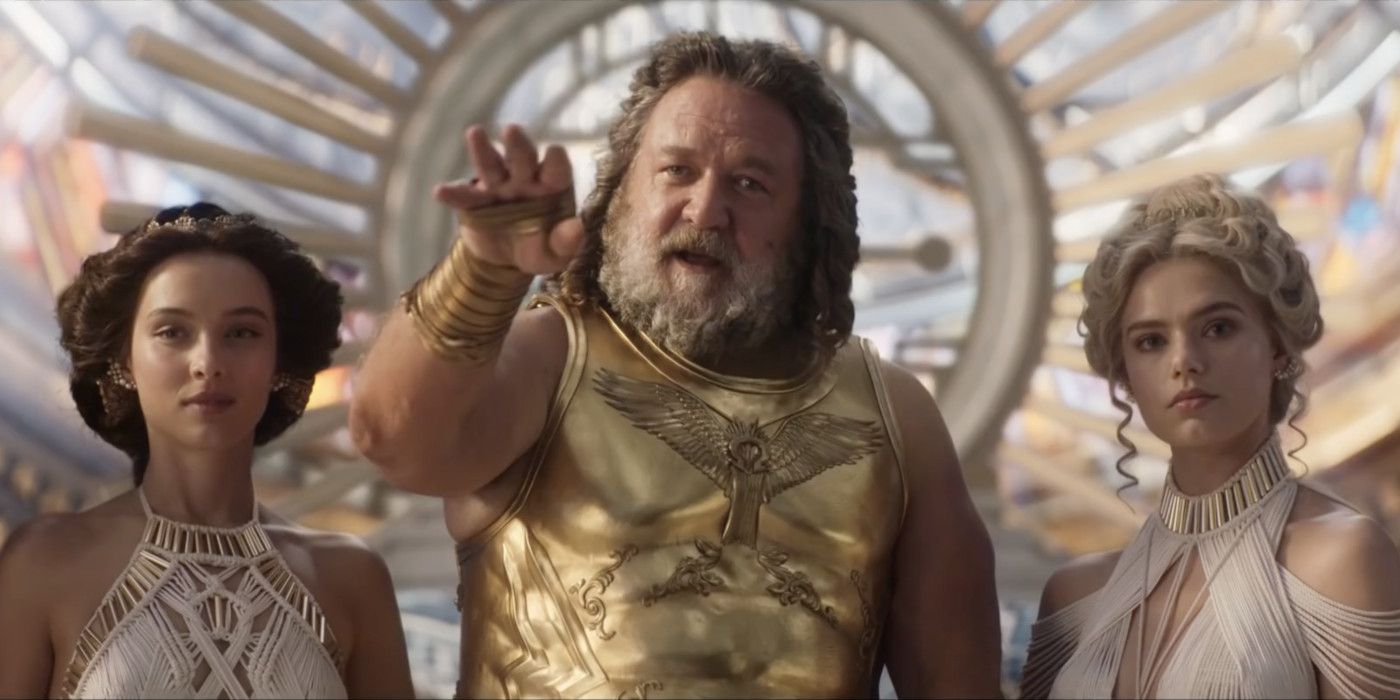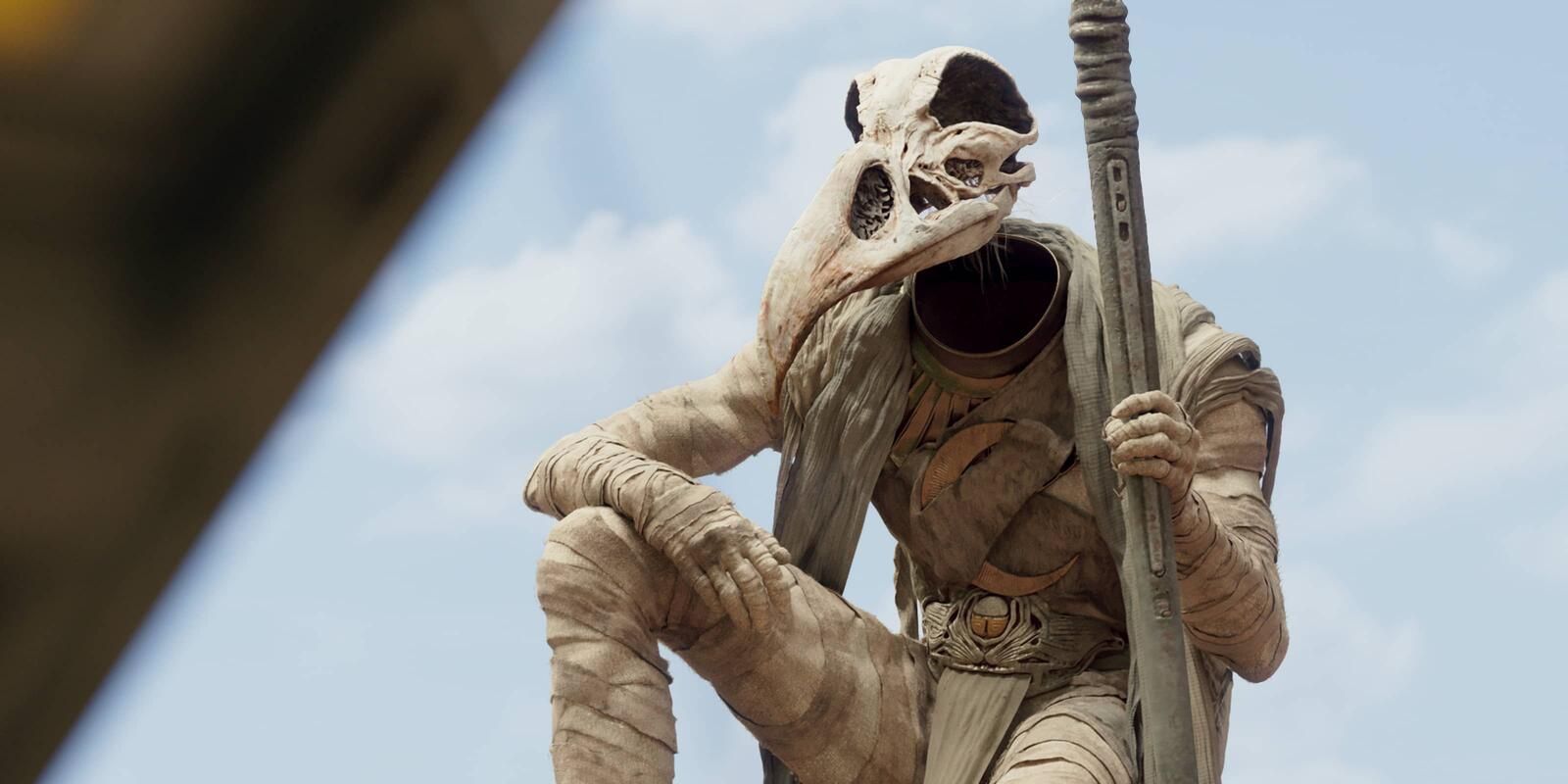The new trailer for Thor: Love and Thunder includes a closer look at a new section of the Marvel Cinematic Universe: Olympus, home of the Greek pantheon of gods and the arrival point for Thor and his entourage at some point in the movie. The specifics remain under wraps, but Russell Crowe's appearance as Zeus was a highlight of the trailer, and the possibility of adding Hercules to the MCU suddenly feels very likely indeed.
The exact way that Thor's Norse pantheon interacts with the Greek one is a far thornier question, however. The two occupy very different sections of the MCU and fulfill extremely different purposes. Yet, they're bound by common roots in folklore and by similarities in temperament if not always in ethics. How they interact is an open question that the new movie will presumably take advantage of.
The Greek pantheon began in the Marvel Comics well before Thor was established, with Hercules first appearing in 1945's Young Allies #16 and Zeus a few years later in 1949's Venus #5. Hercules reappeared in 1965's Journey into Mystery Annual #1, which also formally brought Zeus into Thor's circle. That comic depicts an epic clash between Thor and Herc, created by a misunderstanding that is ultimately resolved and leads to a loose allegiance between the two realms. Hercules would eventually join the Avengers in 1967's Avengers #38 and has remained a team member off and on in the ensuing years.
Any or none of that might appear in Love and Thunder. Zeus's appearance in the trailer suggests that he doesn't recognize Thor, though the blue cloak worn by the Norse god may provide some mystic disguise to explain that. Zeus may also be under the impression that all Asgardians are dead after Ragnarok since it's unlikely he's encountered any survivors before now. Or he could simply be ignorant of the Norse pantheon entirely, having limited his appearances on Earth to Greece where their chances of interacting are unlikely.
Regardless, in terms of classic mythology, it quickly becomes a bit of a hash. Zeus and Thor are both strongly associated with thunder, which suggests they may have had a run-in before, and yet how or in what context is unclear. Odin could have conceivably held meetings with Zeus as two divine "heads of states," but that, too, is neither stated nor implied. Greek gods are traditionally more indifferent to the suffering of humans than Norse gods, which could suggest either active enmity or utter ignorance of each other, depending on the circumstances.
It comes on top of a number of additional mythic pantheons and figures already formally developed for the MCU. Moon Knight established the Egyptian Ennead as disaffected, isolated and inhabiting an isolated dimension known as the Overvoid. And yet, sharp-eyed fans have spotted what may be the Egyptian goddess Bast near Jane Foster’s Mighty Thor and King Valkyrie on Olympus, which suggests at least one of the Ennead is more free-ranging. She may or may not also be the "Bastet" who serves as Wakanda's patron deity in the Black Panther movies. To add to the confusion, many of the Eternals -- including Sersi, Thena, Ikaris and Phastos -- closely correspond to figures of Greek myth and yet are otherwise unconnected to the Olympians presented in Love and Thunder. Athena is Zeus's daughter in the old stories, for instance, and yet Angelina Jolie's Eternal is the creation of the Celestial Arishem, not Crowe's gone-to-seed ruler.
It doesn't necessarily need a formal resolution. The MCU is a messy place by design and is big enough for the various pantheons to interact or ignore each other in myriad ways while still keeping within canon. The predictable chaos from such an arrangement suits director Taika Waititi exquisitely, and Thor: Ragnarok rode to victory on conceptually similar mayhem. The Olympian gods may be setting up to do the same thing in Love and Thunder, a fact that doesn't make the hot mess of the MCU's deities any easier to parse.
Thor: Love and Thunder opens July 8 in theaters.




